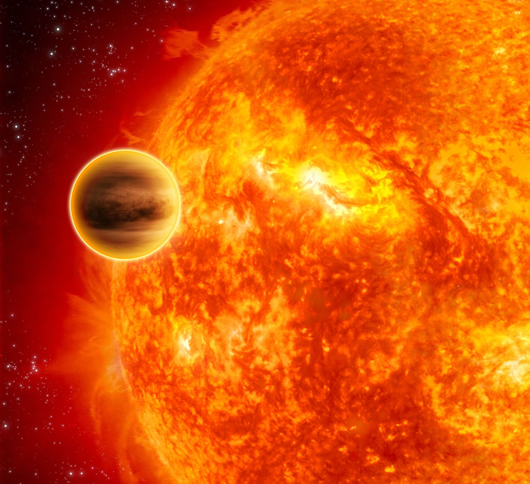Life on other planets ‘a real possibility’

The chances of discovering life on other planets are now greater than ever and mankind needs to prepare itself for the consequences of meeting alien life forms for the first time, a major conference organised by a St Andrews scientist will hear today.
The conference – The Detection of Extra-Terrestrial Life and the Consequences for Science and Society – is taking place at the Royal Society in London on January 25th and 26th and has brought together leading astronomers and scientists from around the world.
One of lead organisers – Dr Martin Dominik of the School of Physics and Astronomy, University of St Andrews – says rapid advances in deep-space exploration techniques mean the discovery of life on other worlds in our lifetime is now a real possibility.
“Astronomers are now able to detect planets orbiting stars other than the Sun where life may exist, and living generations could see the signatures of extra-terrestrial life being detected,” he said.
“Should it turn out that we are not alone in the Universe, it will fundamentally affect how humanity understands itself – and we need to be prepared for the consequences.”
Dominik is one of a team of St Andrews scientists working at the leading edge of planetary exploration. Two years ago he and international colleagues discovered the most earth-like planet found to date – OGLE-2005-BLG-390Lb – using the technique of gravitational microlensing.
The new planet has a mass five times that of Earth and is approximately 20,000 light years from us near the centre of the Milky Way where it orbits its parent star, a red dwarf some five times less massive than the Sun.
OGLE-2005-BLG-390Lb is a small cold world, too cold to support life, but its discovery by detecting the way it bends and distorts light was hailed as a groundbreaking result in the search for extra-terrestrial life.
Speakers at today¿s London conference include Lord Rees, President of the Royal Society and Astronomer Royal.
He believes the discovery of extra-terrestrial life has the capacity to change humanity forever and would alter our view of ourselves and our place in the cosmos.
“Technology has advanced so that for the very first time we can actually have the realistic hope of detecting planets no bigger than the earth orbiting other stars,” he said.
“We’ll be able to learn whether they have continents and oceans, learning what type of atmosphere they have.
“Although it is a long shot to be able to learn more about any life of them, then it’s tremendous progress to be able to get some sort of image of another planet, rather like the earth orbiting another star.
“The recent deployment of space telescopes capable of detecting earth-like planets around distant stars now make it possible to focus the search.
“Were we to find life, even the simplest life, elsewhere that would clearly be one of the great discoveries of the 21st Century.
“I suspect there could be life and intelligence out there in forms that we can’t conceive.
“And there could, of course, be forms of intelligence beyond human capacity, beyond as much as we are beyond a chimpanzee.”
ENDS
Issued by the Press Office, University of St Andrews
Contact Niall Scott on 01334 462244, 07711 223 062 or email [email protected]
Ref: ET 250110
Category Research